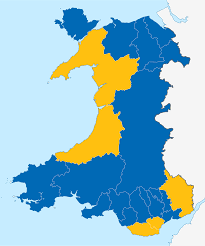- This article has been written by Olivia Bridge who is a political correspondent and commentator for the Immigration Advice Service – an organisation of leading UK immigration solicitors.
Having temporarily sidestepped an immediate ‘no deal’ disaster, the UK is now in serious dispute over how it intends on departing the European Union. If MPs can’t agree to the deal for the third and final time, the UK will be exiting the EU without a deal on 12 April. However, if Theresa May’s Withdrawal Plan is favoured, the UK can expect to leave the EU in an orderly fashion on 22 May.
However, deal or no deal, the Government’s proposed ‘skills-based’ immigration plan presents a multitude of problems for the NHS across Wales where medical staff are already struggling under staff shortages, rota gaps and compromised patient care.
12.7% of staff identify as non-British across the UK’s NHS, yet in Wales specifically, the Welsh NHS Confederation found over 2% of healthcare workers were of EU origin last year while 30% of its 8,800doctor workforce were trained abroad. 6% were trained in other EU countries.
However, fears have continually been mounting across the sector since the EU referendum following from what was depicted as a “Brexodus” of EU staff leaving their positions in the UK. For every EU nurse who joined NHS Wales in 2017, another two left. NHS Wales warn that it could take years to train and replace these vital staff members.
As anxieties are now at their peak, twenty frontline Welsh healthcare professionals signed an open letter to expose the ramifications Brexit will have on their sector last month, including staff shortages, the quality of research and a reduced supply of key medicines and cancer treatments. In the event of a no deal, Brexit could even result in cancelled NHS operations and delays in diagnoses.
The Government’s post-Brexit immigration vision for Wales fails at alleviating such fears. In actuality, the blueprint promises to only cement the shortages further as doctors, nurses, care workers and surrounding healthcare staff will be subjected to stringent visa rules and regulations as soon as December 2020. Once Free Movement officially ends on Brexit day, EU health workers entering the country have until 2021 to apply for Settled Status – providing the UK leaves with a deal. Departing without a deal, however, means that EU entrants will need to apply for ‘European Temporary Leave to Remain’ status which lasts for 36 months. After this, they must then seek a visa – or else leave the country.
The problem with this, however, is that medical practitioners, technicians, graduate nurses and doctors, care workers and similar supporting medical staff members may be exempt from a visa entirely due to the Tier 2 Visa minimum salary requirement of £30,000.
As for those fortunate enough to meet – and afford – the Tier 2 visa route, many will be deterred entirely due to the Immigration Health Surcharge (IHS) rocketing in price this January. The IHS grants migrants’ access to the NHS while in the UK, yet for doctors and nurses on a five-year visa, this upfront fee doubled from £1,000 to £2,000 this January.
Critics have been quick to point out that such a move will not only negatively impact industry-wide shortages, but many believe it is unjust to expect our vital healthcare staff to pay through their pockets to use the NHS that they so overwhelmingly prop up. It would certainly appear the Government is actively counteracting any of the NHS’ recruiting efforts that are only seeking to patch up an already breaking and struggling workforce.
Recruiters are already competing with centralised services in Wales while other doctors have critiqued certain services for being too far away for patients. The nearest radiotherapy centre for patients on the coast of Ceredigion being Swansea, for example, which is a five-hour round trip. And recruiting in such rural areas have proven particularly difficult since graduates and fresh talent are being drawn towards the big cities, Cardiff and Swansea as well. A campaign to recruit consultants at Bronglais Hospital in Aberystwyth in 2016 failed to attract any new applicants due to this, resulting in the hospital closing 11 of its beds on its cardiac monitoring unit the following year as a result of insufficient staff levels.
Welsh Government Health Secretary, Vaughan Gething, has called for a new immigration system to “link migration policy more closely to employment, so that we can recruit the doctors, nurses and other health and care workers that we need, whilst protecting them from exploitation.”
Indeed, as Wales stands on the precipice of a heavily ageing population that vastly outruns the rest of the UK – a quarter of the Welsh population will be 65 or over by 2030 compared to only 22% of the rest of the UK – Wales clearly needs every help it can get to recruit healthcare staff.
However, without a radical overhaul of the proposed immigration system and revision to the doubled IHS fee, hospitals and centres all across Wales may be forced to close more beds, experience widened rota gaps, skills shortages and ultimately, compromised patient care. Time is running out for the Government to save the sector from collapse, but with Brexit hogging all of Westminster’s attention and the likes of Wales, Scotland and the North pushed out of MP’s peripheral of concern, what hope is there for the future of our NHS services and staff?
Help keep news FREE for our readers
Supporting your local community newspaper/online news outlet is crucial now more than ever. If you believe in independent journalism, then consider making a valuable contribution by making a one-time or monthly donation. We operate in rural areas where providing unbiased news can be challenging. Read More About Supporting The West Wales Chronicle























